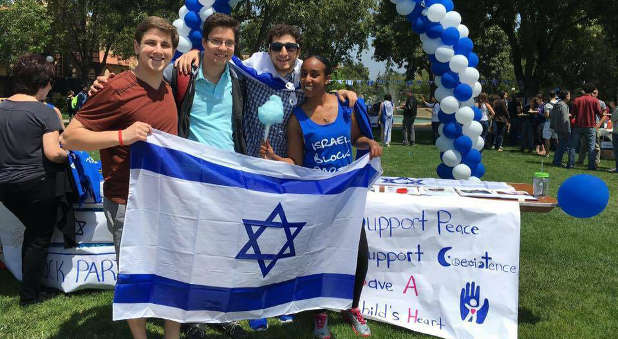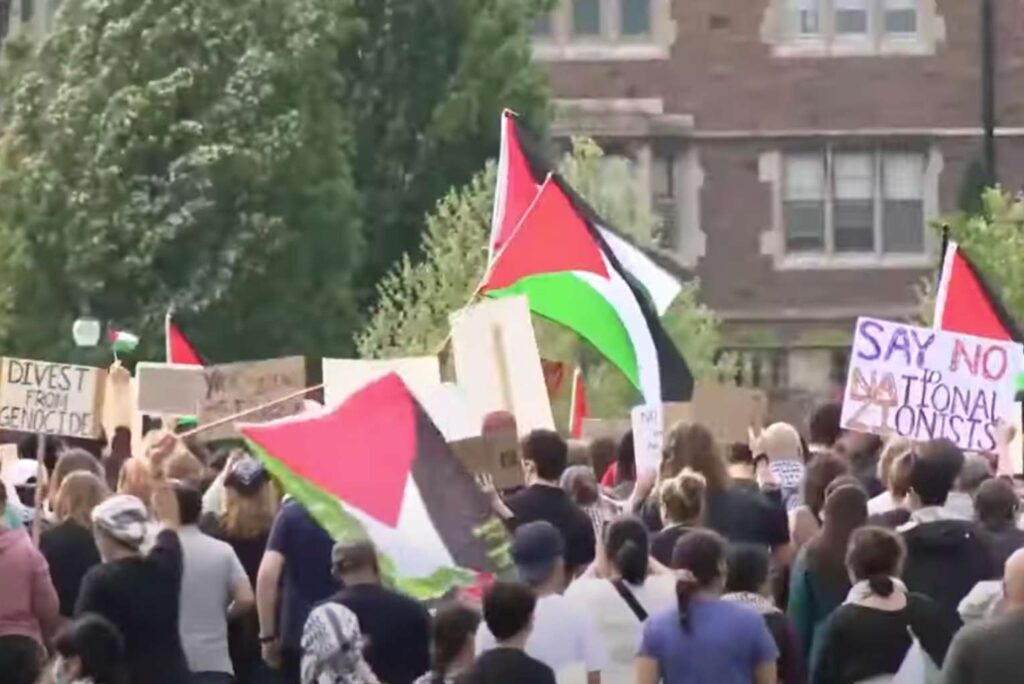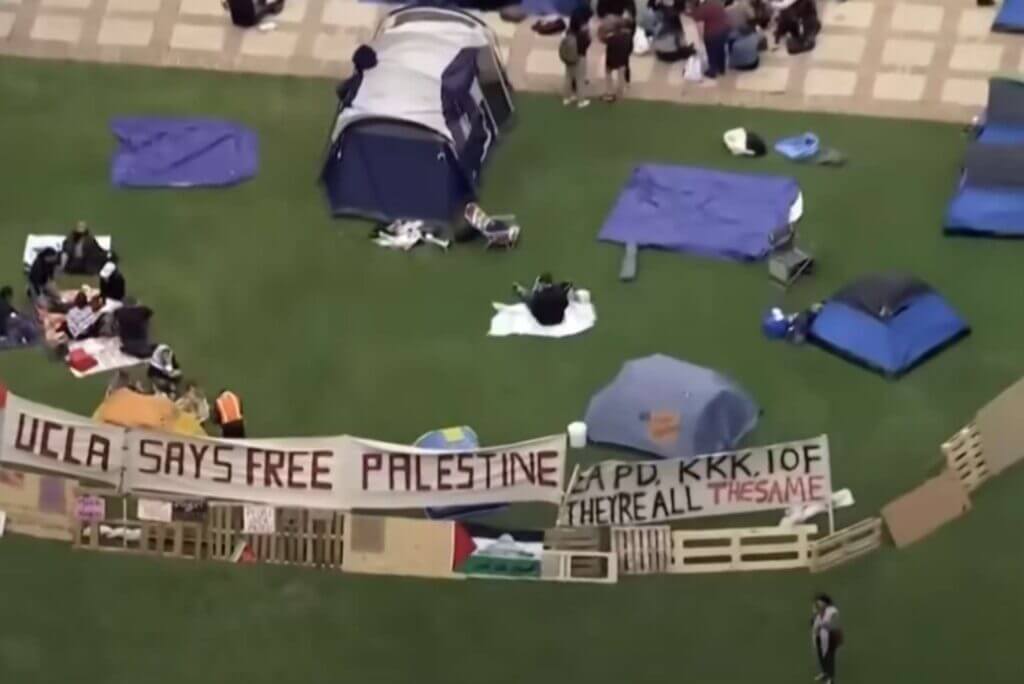In today’s climate on college campuses, Jewish students often face a fight-or-flight choice in the face of increasing anti-Israel and anti-Semitic rhetoric, discrimination, and even physical violence.
There are numerous ways that Jewish advocacy groups advise students to counter the hatred on campus, ranging from holding demonstrations to simply ignoring the threats.
Promoting a positive connection to Israel is instrumental in countering anti-Zionism, according to The Jewish Agency for Israel, which together with Hillel International created the Israel Fellows program—a network of 75 Israeli young professionals serving as “ambassadors” at more than 100 North American university campuses. The fellows come from Ethiopian, Middle Eastern, Indian, European and central Asian backgrounds.
According to the Jewish Agency, the goal of the program is “to promote connections to Israel and Israelis, create positive Israel-related experiences and educational opportunities, and combat rising anti-Israel sentiment and anti-Semitism on campuses.”
The Israel Fellows focus on demystifying Israel for those who have little knowledge about the country.
Shachar Levi, an Israel Fellow at the University of Texas at Austin (UT Austin), told JNS.org that the program is not about “positive or negative” views of Israel, but about “variety” in terms of providing students with a more nuanced connection to Israelis and their diverse culture.
Levi, 28, was raised in Tel Aviv, served in the Israel Defense Forces (IDF), and studied government, diplomacy, and counter-terrorism. He said each fellow can share a personal narrative about Israel to students who simply “don’t have enough knowledge” about the Jewish state. Levi hopes that sharing personal stories will provide a more realistic picture of Israelis in lieu of one-sided, negative portrayals in the media—both for Jewish students who aren’t very connected to Israel and for the wider campus community.
The Israel Fellows aim to organize events in which students from different cultures can discover shared values, fostering a climate of mutual respect. One of Levi’s events, for instance, brought together Indian students celebrating the Diwali festival and Jewish students celebrating Hanukkah around the same time. Both holidays are known as their culture’s festival of lights.
Rabbi Daniel Septimus, executive director of Texas Hillel, said Levi’s efforts have made a significant difference for the discourse about Israel on campus.
“Shachar’s creative spirit is exciting and inspiring to our students,” Septimus said. “He provides an informal way to learn about Israel through one-on-one conversations, and helps students navigate their personal relationships to Israel by providing the cultural and historical context only an Israeli can offer.”
Rebecca Avera, the Israel Fellow at Stanford University in California, is an Ethiopian Israeli from Haifa. Her parents were Jewish refugees from Ethiopia who raised nine siblings with a strong Jewish identity.
Realizing that many students who meet her are seeing a black Jew for the first time, Avera has successfully built connections with not only Jewish students, but also African-American and Asian students, particularly by collaborating on events with the campus associations representing students of color.
Last December, during Hanukkah, Avera centered an event around the Ethiopian-Jewish holiday “Sigd.” The event taught more than 200 attendees about Ethiopian-Jewish dress, dance and food. Avera shared her family’s story, highlighted by her mother’s journey to Israel, in which she walked hundreds of miles across northern Africa to Sudan and was ultimately rescued by the IDF.
Avera’s outreach to other student communities is enabling more people to learn about the realities of Israeli life. In a coffee date with a freshman student from Stanford’s Black Student Union, Avera said she spoke about her personal challenges related to being black in Israel. The student was so impressed that she now wants to organize an event about Avera’s life story.
In reaching out to campus minorities, Levi and Avera attempt to use diversity to Israel’s advantage on campus, countering anti-Israel groups’ usual recruitment of minority students to support the Palestinian cause—most often through comparing Israel to apartheid-era South Africa and eventually convincing black students to support the anti-Israel Boycott, Divestment and Sanctions (BDS) movement.
Avera said she has noticed a decrease in the aggression of the anti-Israel voices on her campus, explaining that the pro-Palestinian student group at Stanford now tends to focus on educational and cultural issues rather than BDS. While a resolution encouraging the university to divest from Israel passed last year in Stanford’s student government, this year “they don’t want to focus on [divestment],” she said.
Levi believes many college students participate in anti-Israel protests because there is “a lot of pressure to build strong opinions.” Students tend to embrace the anti-Israel movement because they mistakenly “think it’s a human rights issue,” he said.
Last year, UT Austin’s Palestinian Solidarity Committee student group disrupted a lecture by a visiting professor who was speaking about Israeli military culture. After protesters shouted “free, free Palestine” and “long live the intifada,” the confrontation became physical and the police needed to intervene.
Israel Fellows, according to the Jewish Agency, have been able to respond in a proactively positive way to more than 100 incidents of campus tension through hosting discussion groups, speakers, cultural programs and leadership development opportunities. While anti-Israel groups at UT Austin “try to separate people,” said Levi, Israel Fellows “try to bring people together.” {eoa}
For the original article, visit jns.org.
See an error in this article?
To contact us or to submit an article




















